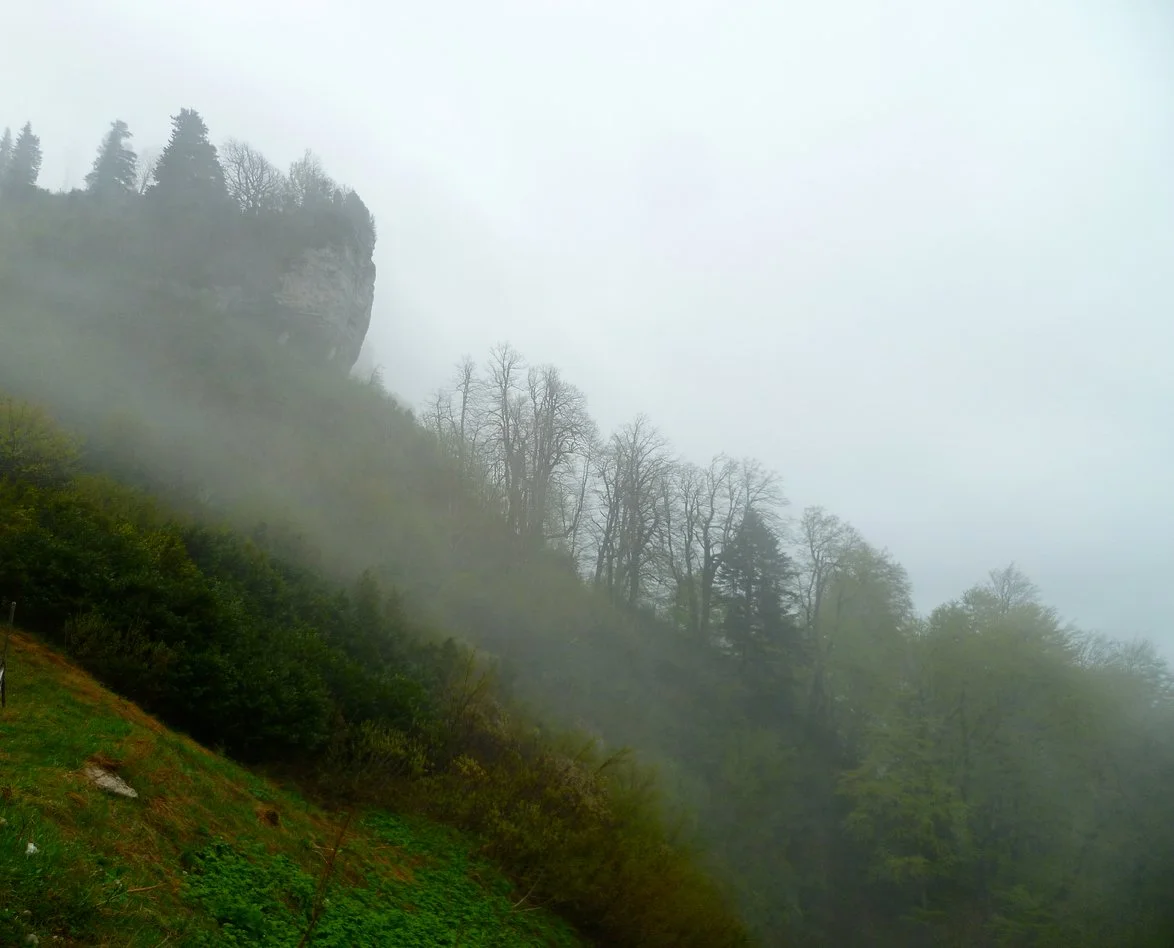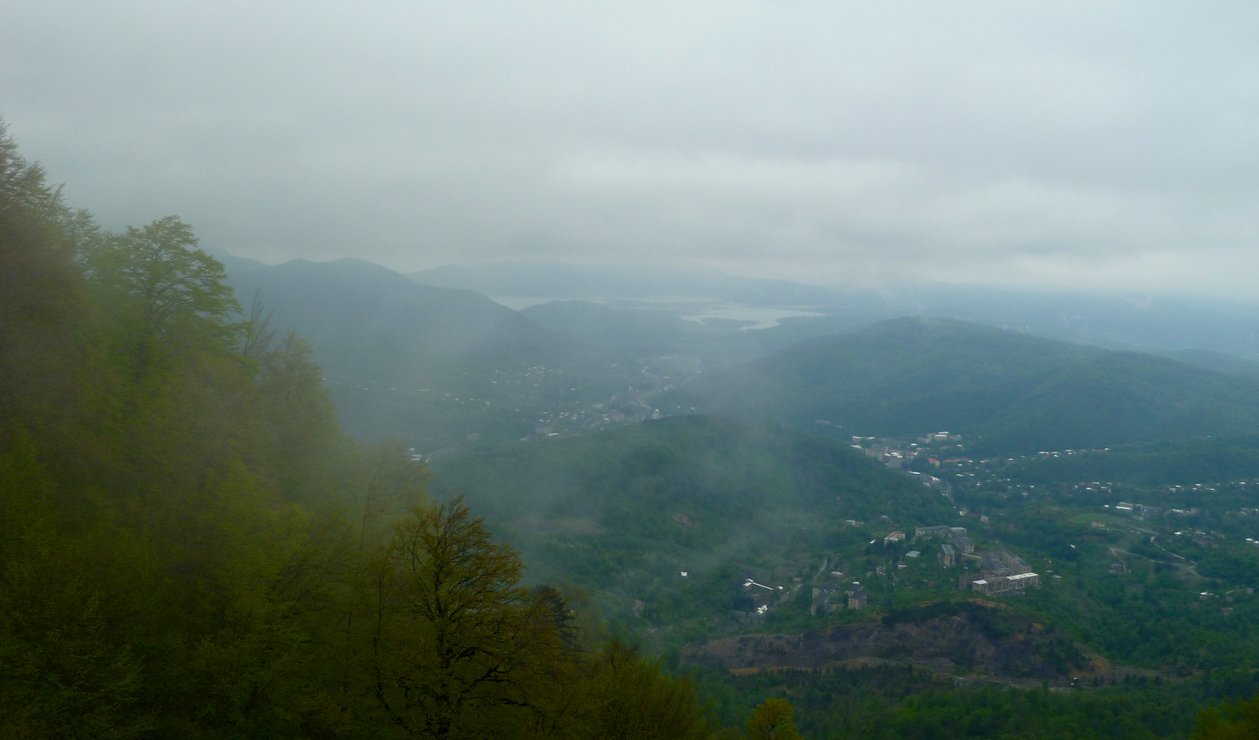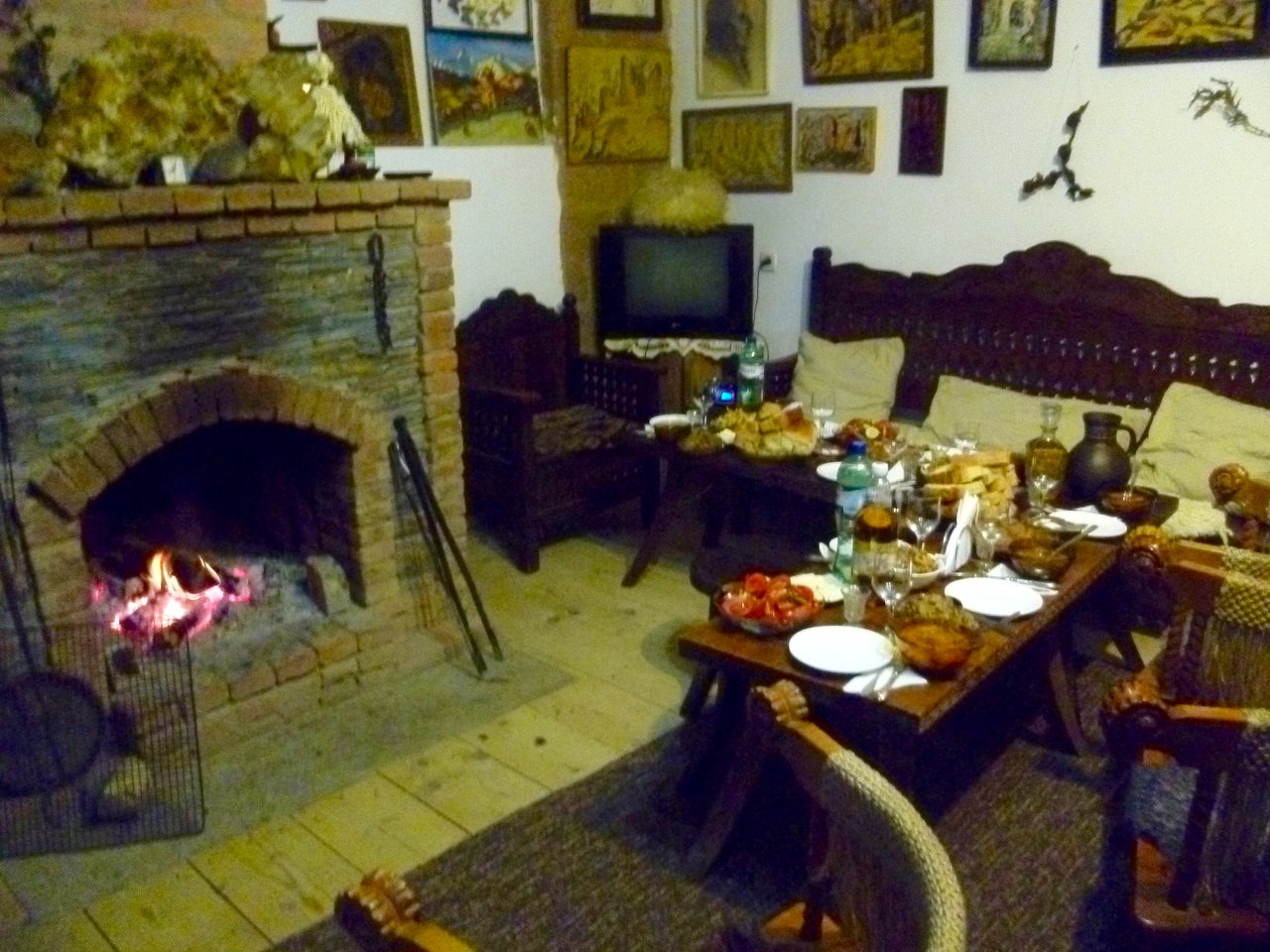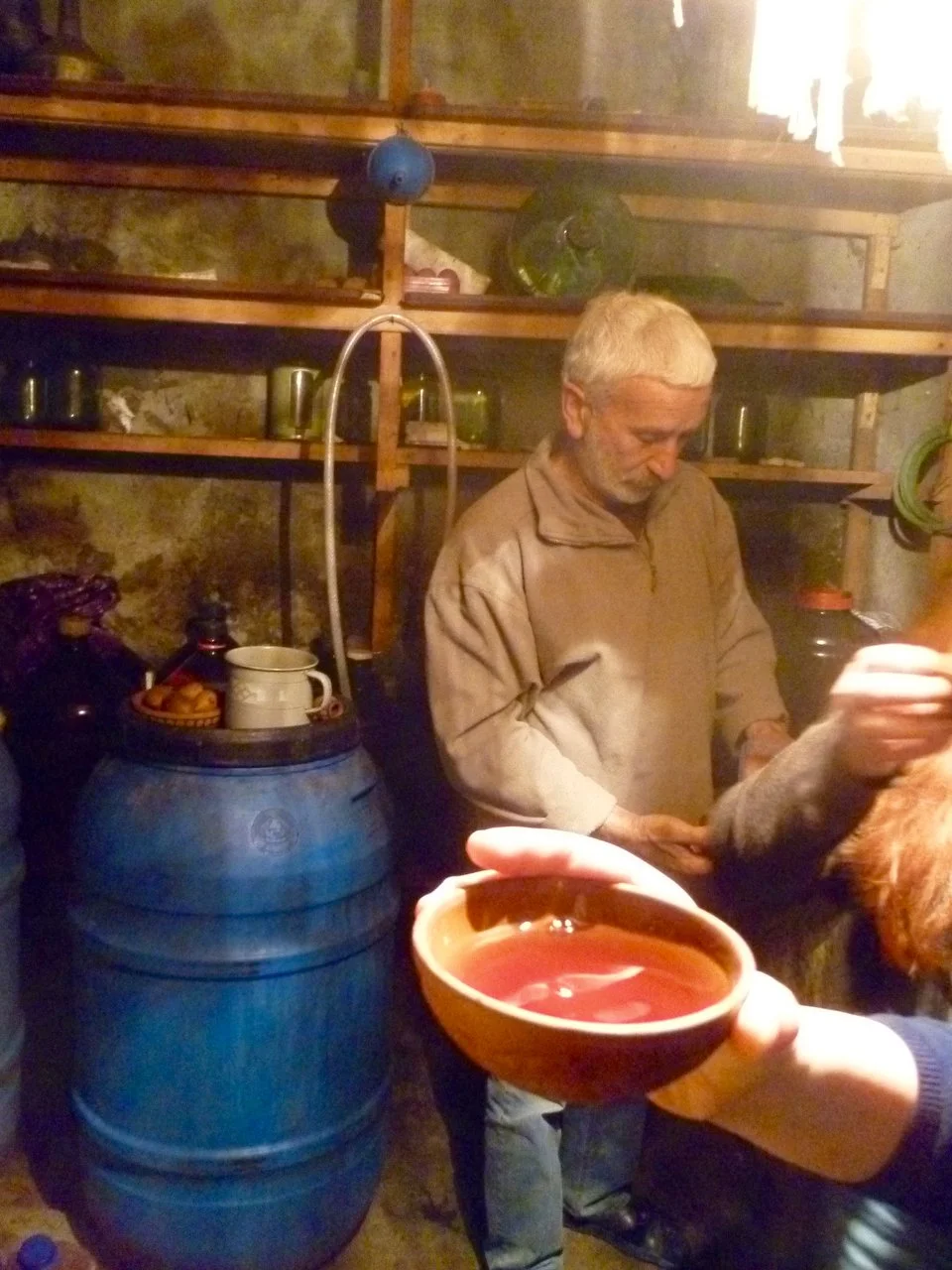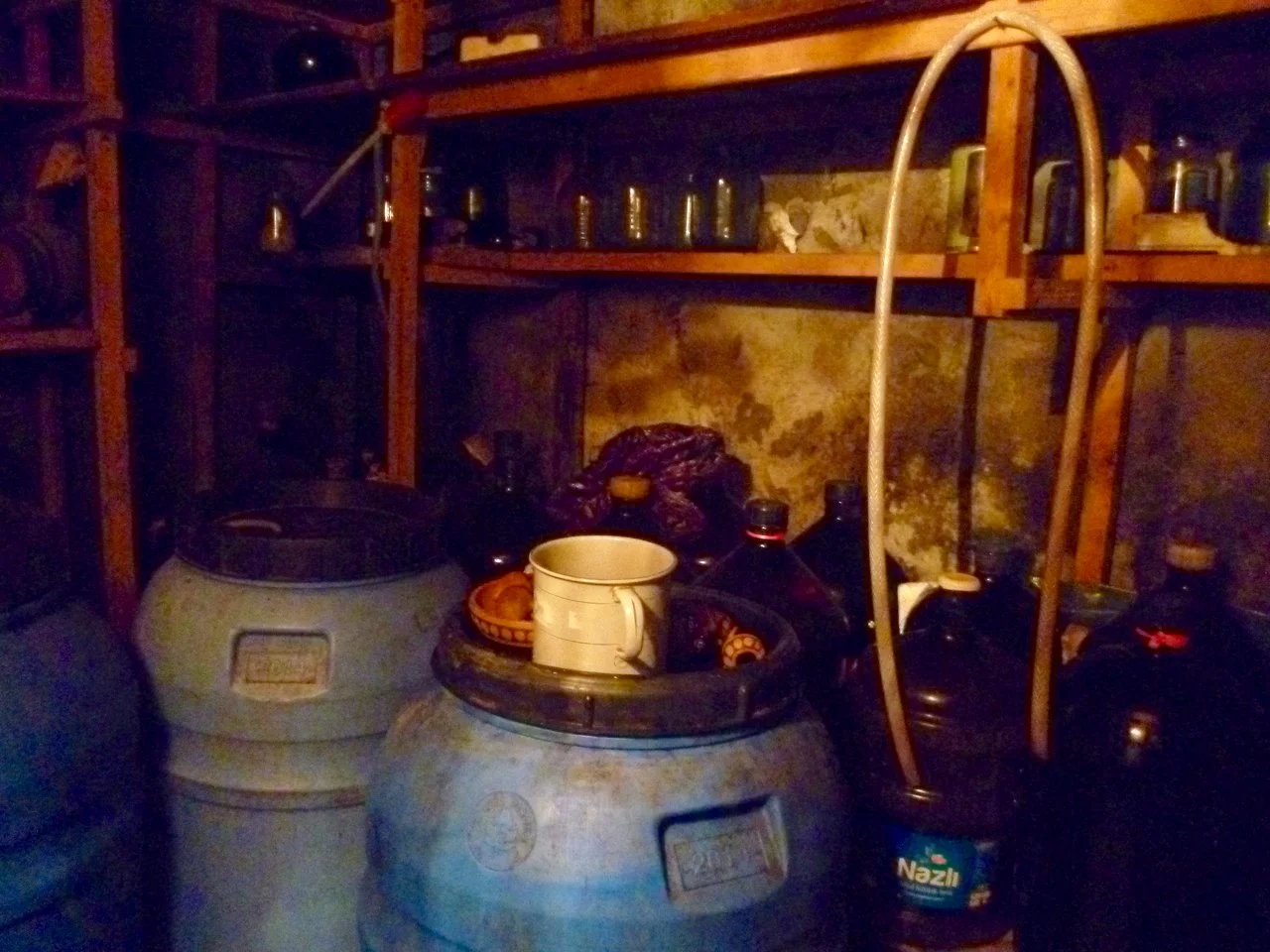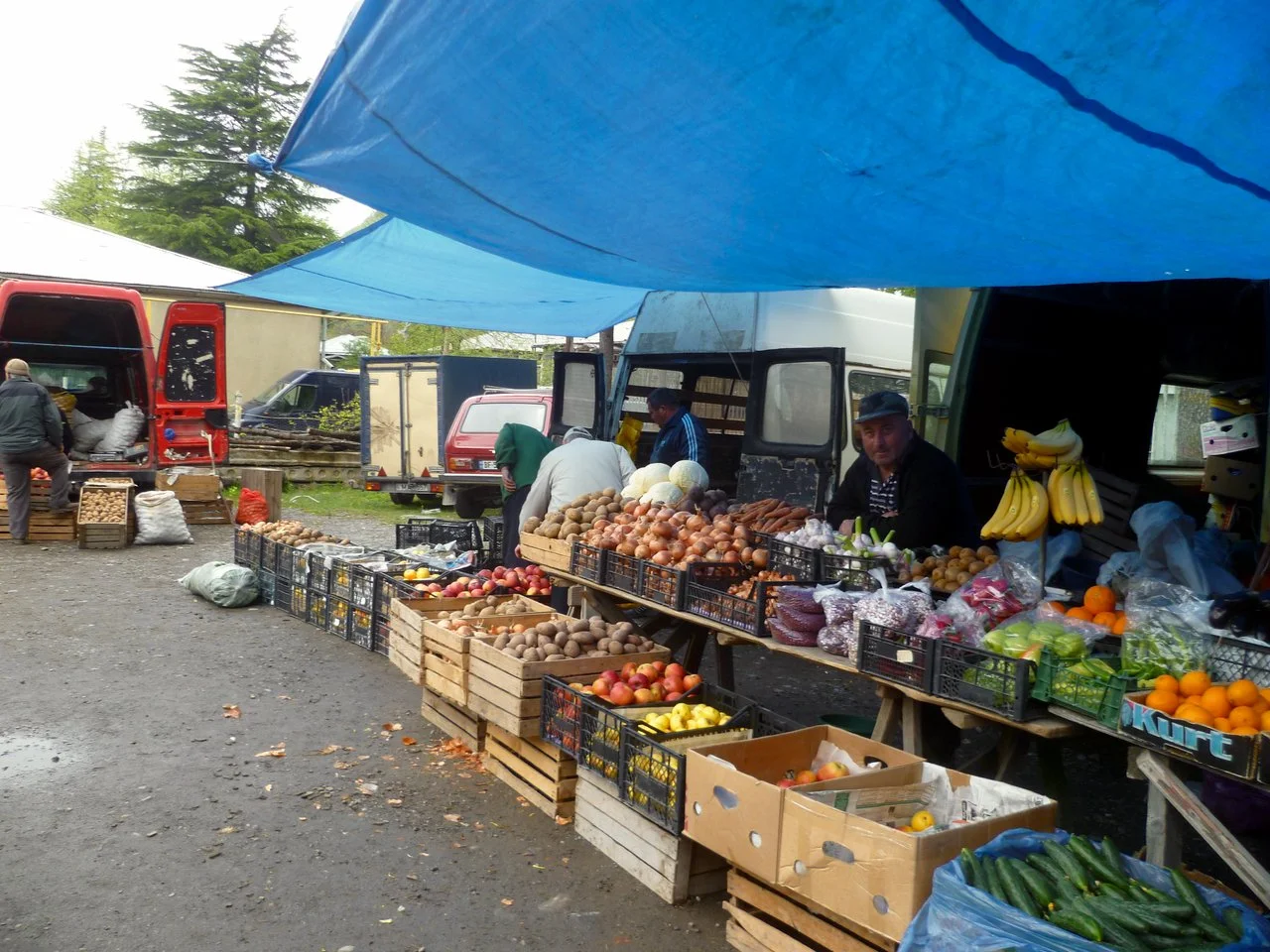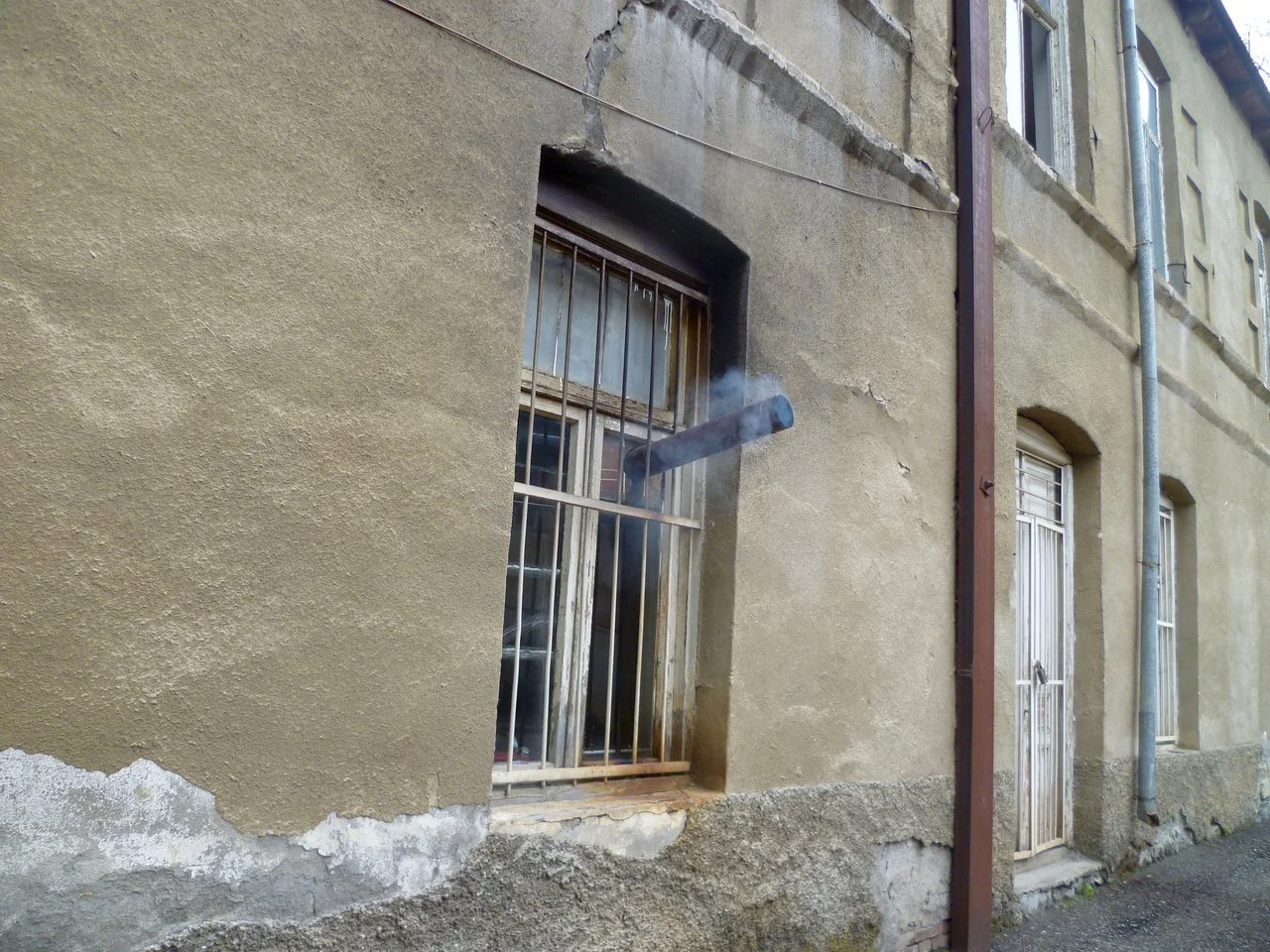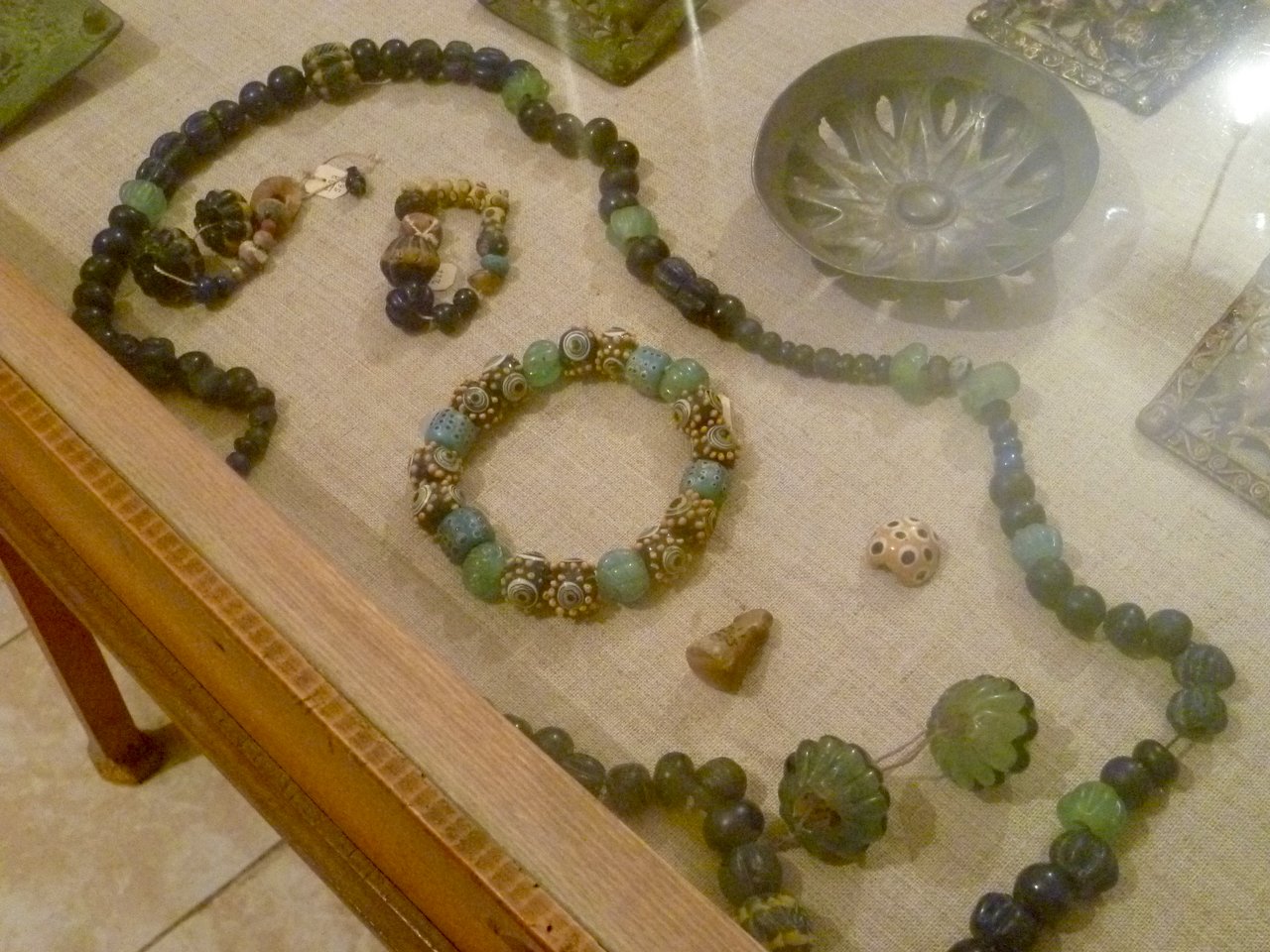Up into the Racha mountains
Racha is a region in Western Georgia that borders Russia and South Ossetia– don’t worry, we didn’t go anywhere near South Ossetia. Besides, it’s impossible to even enter South Ossetia from Georgia these days, according to our Georgian guide. Russian troops have established a barrier.
Much of Racha is taken up by a nature preserve and there are only two little towns in the vast mountainous area. We stayed in Oni, a town that was established in the 2nd Century B.C.E. It is also the region that produces Khvanchkara, the famous red semi-sweet wine. We made our way up into the mountains and it began to get quite foggy.
It was windy and damp, and by the time we arrived into Oni we were all a bit chilly. Weren’t we lucky, then, that this is the scene that greeted us:
This is the Family Hotel “Gallery,” run by Timur and his family. Timur built the houses in the little compound and his wife cooks. They have their own garden and their own livestock– everything is made from scratch. The building we stayed in is made in the old Georgian style, with all rooms exiting onto a large porch:
Downstairs from the bedrooms is where Timur makes the wine: a fruity, utterly delightful beverage that sneaks up on you. He immediately had us try some, making one of our group drink out of the traditional Georgian horn:
It’s at Number 18 Stalin Street:
We stayed there for a few blissful days, eating, drinking, and taking little afternoon jaunts to various places of interest in the region. For example, we walked to the market in Oni. Here we’ve got a photo of what the main street in Oni looks like, along with some views of the market.
The only woman we significantly interacted with was the woman selling spices. We all bought a bunch of them, even though we had difficulty communicating. After I got home I noticed how wonderful my suitcase smelled, even though I’m not sure what it is she sold me. On the way back to the gust house we saw a man selling a very ingenious heating stove. It is designed to run on wood, gas, or electricity, whichever you’ve got. Timur says he wants to get one of those. Coincidentally, as he said this I saw a stovepipe peeking out of the window of a building.
After we took one of our little jaunts, we would typically go back to the house so they could stuff us full of food again and so we could “rest” from our not-at-all-exhausting activity. Every meal had wine, even breakfast.
On another of our little outings we went to the local Oni museum, which is still in the process of being put together. They had some artifacts from the Bronze Age, some local artwork, and other miscellaneous items such as this jewelry that the guide said came from Syria, brought to Georgia during the Arab invasions of the 8th Century. Since the current museum is really just one room, they let us into the storage room of the museum so we could see what all they have that they do not display. For example, a bunch of papers from Soviet times, a bench said to fit 20 children, and a big painting of Stalin.
The storeroom also contained fragments of old porches, like this one that has a hammer and sickle.
Well, the museum sure was hard work, so we went back for another meal with wine and some relaxing on our porch, after which we hit the road for some wine tasting. We went to this winery and they briefly explained how the wine was made, but it was so brief it went basically like this: “We take the grapes and smash them in here. Then we put it all in here. We take it out later and drink it.” I mean, who knows? Maybe it really is that simple. It was explained to us that Georgian wine is often not “suitable” for export because the wines do not always have a consistent taste. This is because the Georgian technique involves letting the stems and seeds stay with the grape juice while it ferments so it always comes out a little different. In other areas of Georgia we had been shown how the wine ferments in pots buried in the ground, but this winery used more modern-looking materials.
At some point we went to sleep, I guess, because before I knew it they were stuffing me full of breakfast. Afterwards, Timur took us to some ruins around Racha. Several churches, a few bridges, some interesting rock formations, etc. One place he took us, Gebi, was what he called a “tower village.” Unfortunately, most of the towers have now fallen down due to earthquakes and there is only one remaining. I would like to know more about this, but I can’t even find that much about it on the Internet.
While he showed us around he told us about his near-death experience. He said he was severely injured during the April 9, 1989 protests against the Soviet government. Actually, he didn’t say “severely injured,” he said he died. He said he floated above his body and saw it from afar and that he felt himself moving towards a light, a light full of love and comfort, a light so wondrous that he wanted to keep going forward. But before he knew it, he heard a voice that said, “It’s not your time,” and whoosh! he went back into his body. This event had the effect of a religious conversion on him. Also, after the event, he discovered that he can heal people. He said he didn’t realize this at first, but a woman at a family party came up to him and said, “You must heal me, put your hands on me and heal me.” He didn’t believe her at first, but it was rude to just send her away. So he put his hands on her and, he says, she was healed. Now he heals lots of people all the time. Apparently, he tried to heal members of our group, but, sadly, I was on the toilet at the time and missed everything. Due to all the overeating and overdrinking I could have used some healing myself.
Our last afternoon there, Timur and his wife fired up the still to make chacha (moonshine). We had been taking little sips of a milder version of chacha all week, but this was the real stuff. They had us taste it straight from the still in the traditional horn. Some people say that chacha is like the Italian grappa. I don’t know about that; all I know is I worried that hair would start growing on my chest.
Timur’s wife also taught us to make bread in the traditional way. You make the dough and then you slap pieces of it on the inside of a big, stone barrel. We were clearly amateurs; you can see where some of our bread stuck.
Our final feast featured some new guests who had just showed up to the hotel: some Swedes and another group of Russians. It’s always nice to have a big group of jolly people, but somehow, the spell of our tight little group had been broken. A young girl came and serenaded us while we ate but, we missed our time as the six musketeers.


